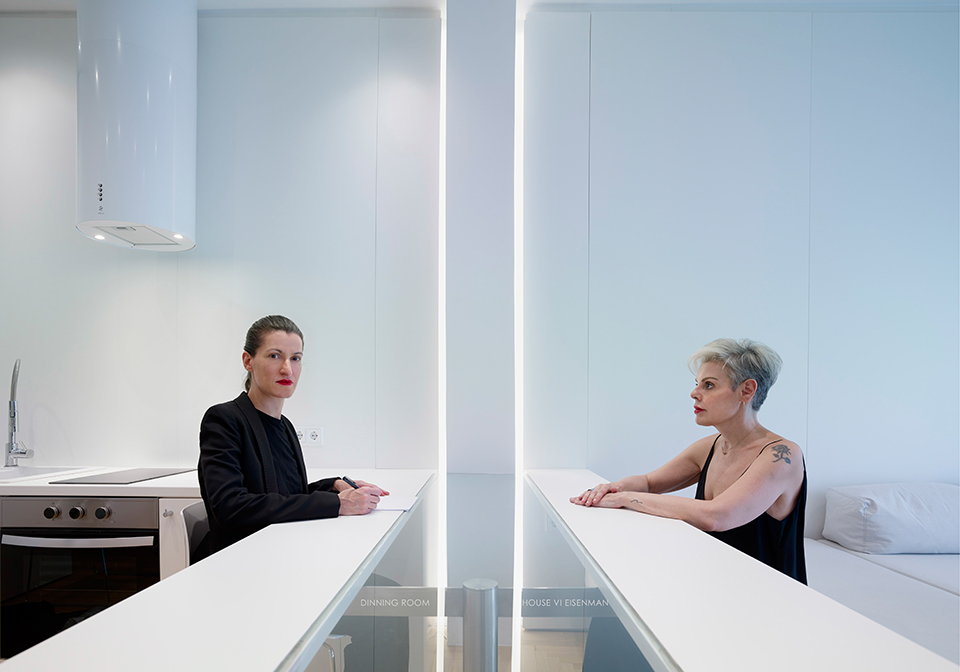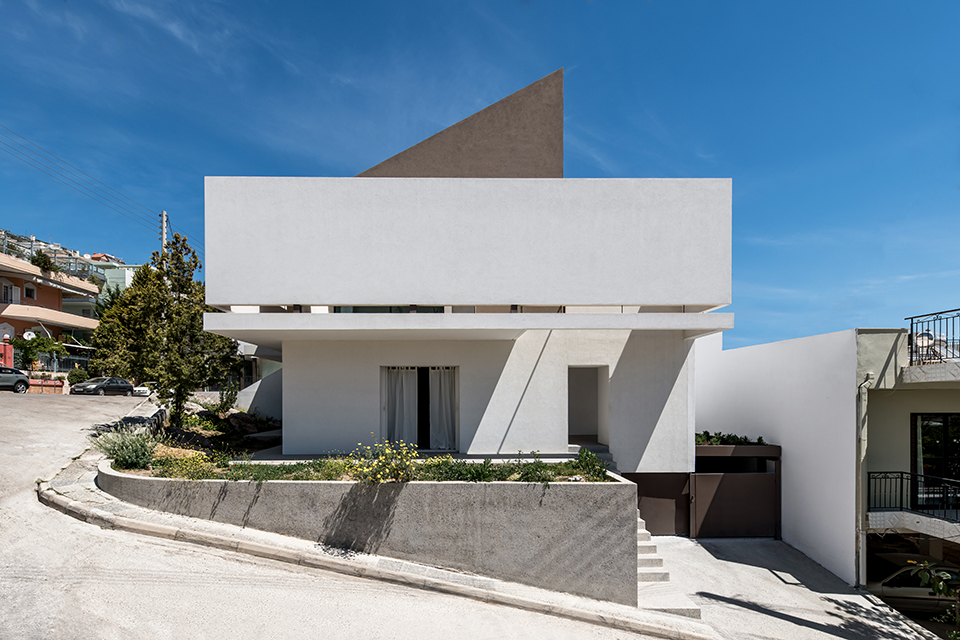
“The Greek summer experience is not a building experience. I would like us to remember the memories that we all have from childhood: splashing around, playing with each other. What we advertise as a villa with stunning desert views is not Greek summer.”
Video with an excerpt from her speech Myrtos Kurtis for the Greek summer has collected thousands of views on social networks. And this is no coincidence, because the award-winning architect has touched on a topic that excites more and more people: how a massive influx of tourists can change the experience of the Greek summer and, by extension, the landscape of the Greek islands. A topic that has come to the fore again after the revelations of abuses in Mykonos and uncontrolled reconstruction in the famous islands of the Cyclades.
In a conversation with K, Mirto Chiurti shared her proposal on how architects can translate the experience of summer into architectural and urban design, as well as her reflections on the current situation.
Psychoanalytic approach
Moreover, Mrs. Corti’s approach to architecture is almost psychoanalytic. “I see architecture as very connected to people’s lives and complex cultural phenomena,” he tells K. The first questions she asks the person sitting across from her to discuss the house or office she wants to build are never about what she needs or how she envisions it. “I start with questions about anything but home, like where was he born, how did he grow up, why did he decide to study the subject or not, where does he like to go on vacation. And so it really looms what he wants from his home. Some might get embarrassed and first say something they think they like because their mom liked it, for example, or because they saw it in a magazine and were impressed. Sometimes the deep desires of how we want to live are incomprehensible even to ourselves. But the architectural process reveals them.”

A related misunderstanding between what we really want and what we think we want seems to be happening with the Greek summer as well. Stylized Instagram photos in front of infinity pools or images of huge villas in the middle of nowhere that adorn the pages of magazines have nothing to do with the impressions and memories of the Greek summer. “The summer holiday experience in Greece is very appealing, but it has turned into a mess. We uncritically copy the standards implemented in other countries. Doesn’t seem smart to me. You have to see your own reality and sell what you are,” he notes, emphasizing that Greek culture is incompatible with a large mansion in a desert landscape. “We are a very social culture. The experience of living in Greece is very social and many of the people who have come to love this country and made it famous all over the world speak of the strong friendships they have developed with the locals on the islands.”
However, this sociability is not perceived by many tourism “players” who have come to the country due to the large increase in tourists and reproduce what is replicated in magazines, that is, an expensive villa on a large plot. “I think it will destroy our landscapes. It is one thing to use large tracts of land for villas in the villages of Switzerland or Austria with their vast lands, and another in the Cyclades. This perception is destructive to the landscape, but also inconsistent with what made Greece attractive to tourists in the first place. If we ourselves recall our experience, the most attractive element was the amazing sociability that develops in the island settlements.

Island settlement redevelopment
He believes that in the interaction between residents and tourists, as well as visitors themselves, architects should now also strive: “As architects, we could redesign settlements in a way that addresses practical and functional issues, rather than going beyond them. Architectural design in high-end homes tends to be of high aesthetics, but in countries it is not of that quality,” he says, adding that the emphasis is on bringing the visitor into a space of high aesthetics within the settlement. “To create spaces of high aesthetics, respecting tradition in a modern way. To create something traditional, but not folklore, which at the same time solves practical issues, such as, for example, soundproofing. This is something that has already begun to happen in cities. You see, for example, an old apartment building on the outside and a modern apartment on the inside.”
Ms. Kurti also talks about the size of the living space, noting that small spaces like the minimal small bedroom are closer to the philosophy of the island and its traditions, rather than the huge living rooms with huge pergolas that we see mostly in other settings and countries and are now also advertised in the Greek islands. In this way, he notes, a beautiful narrative of everyday life is created: you start with the tense sociability of a settlement, cross a virgin landscape with scattered built houses, and reach the beach. On the way back, you will return to the village, where you will meet both tourists and locals. “What is the experience of a summer in Greece for a person locking himself in a villa with friends or family? Where is the interaction? Also, what kind of interaction if only people with your status come to the island you are visiting? he wonders.
The architect believes that this model of isolated luxury homes or huge hotels is a finished product. But what is needed is to create your own brand based on the sociability of the Greek summer. “As architects, we are called upon to create images that are attractive and will attract the tourists we want and are interested in. I believe that we are mature enough to create our own perspective on how we manage a residential tradition as well as a culture such as the Greek summer, which is a cultural product of the middle class and is unique,” he emphasizes.
The other path, she argues, of anarchic construction and a mass tourism product could lead to overconsumption and ultimately obsolescence, which, as Ms. Kurti points out, we have already seen when the country is happening in other areas. “Lutsa was a wonderful resort and today we are commenting on how it turned out. The people who bought the houses and land may have thought it was good that the area was attracting so many people. Eventually, however, their property was devalued. If we don’t protect the landscape, the tourism product will be discredited.”
Mirto Kurti studied at the NTUA School of Architecture and Engineering and earned her Master of Advanced Architectural Design from Columbia University in New York with a Fulbright Scholarship from the US Government. Her Flying Box project was awarded by the Hellenic Institute. architecture as the 3rd best completed project in Greece for the five-year period 2018-2022. It has been recognized in competitions (1st place in the Panhellenic Competition, award for the best utopian proposal in the pan-European competition “Rethink Athens”), as well as in the Biennale of Young Greek Architects. Her work has been featured at the London School of Economics, Paris-Sorbonne, Milan School of Architecture, Benaki Museum, EMST, Acropolis Museum and has published articles in international scientific journals.
Source: Kathimerini
Ashley Bailey is a talented author and journalist known for her writing on trending topics. Currently working at 247 news reel, she brings readers fresh perspectives on current issues. With her well-researched and thought-provoking articles, she captures the zeitgeist and stays ahead of the latest trends. Ashley’s writing is a must-read for anyone interested in staying up-to-date with the latest developments.